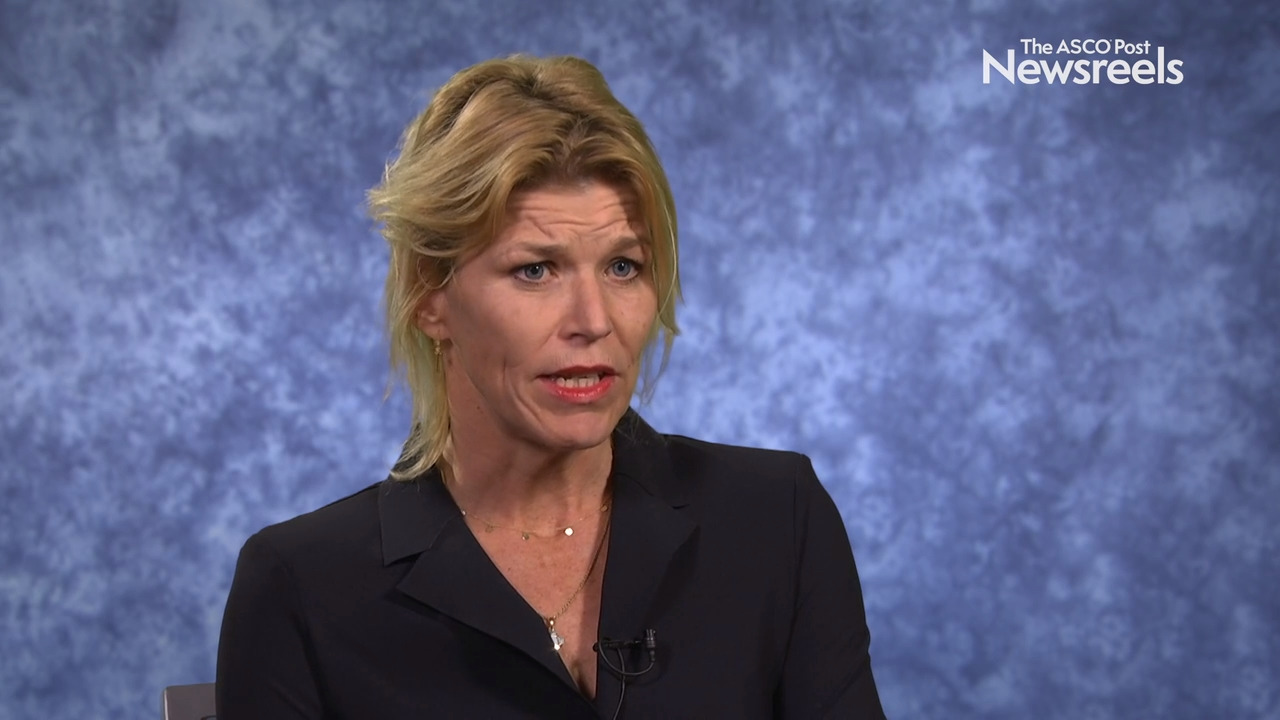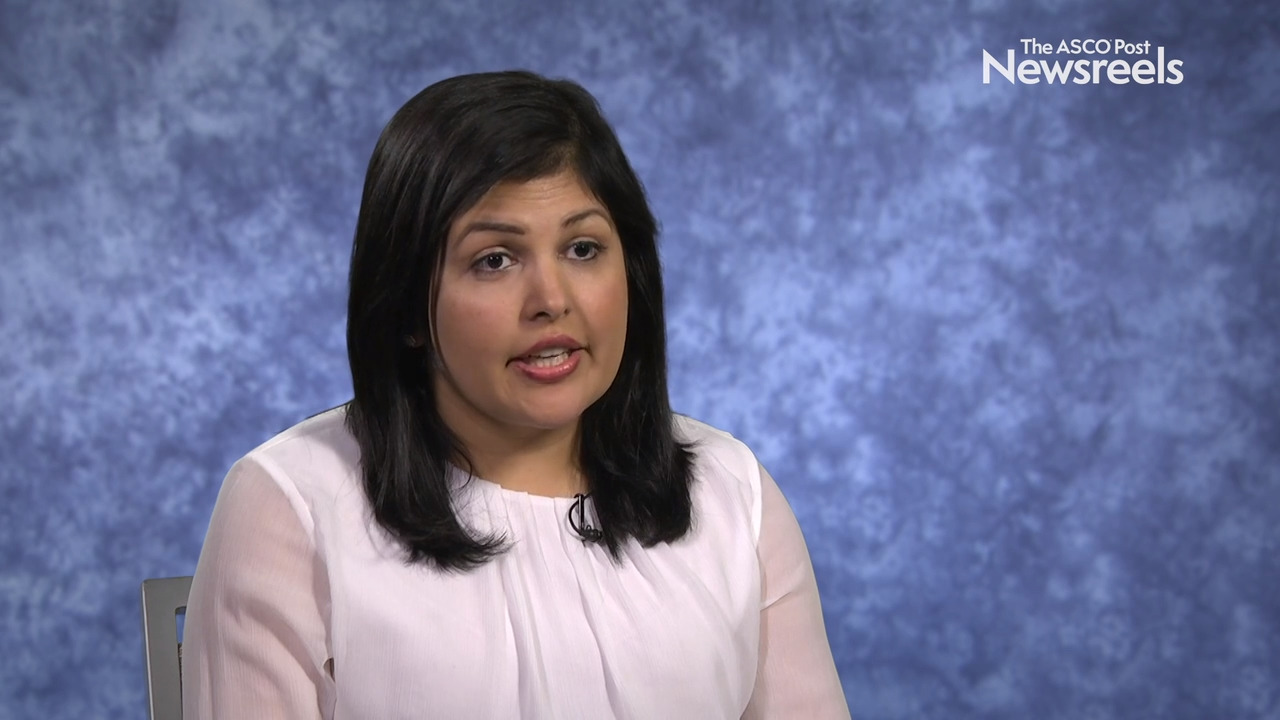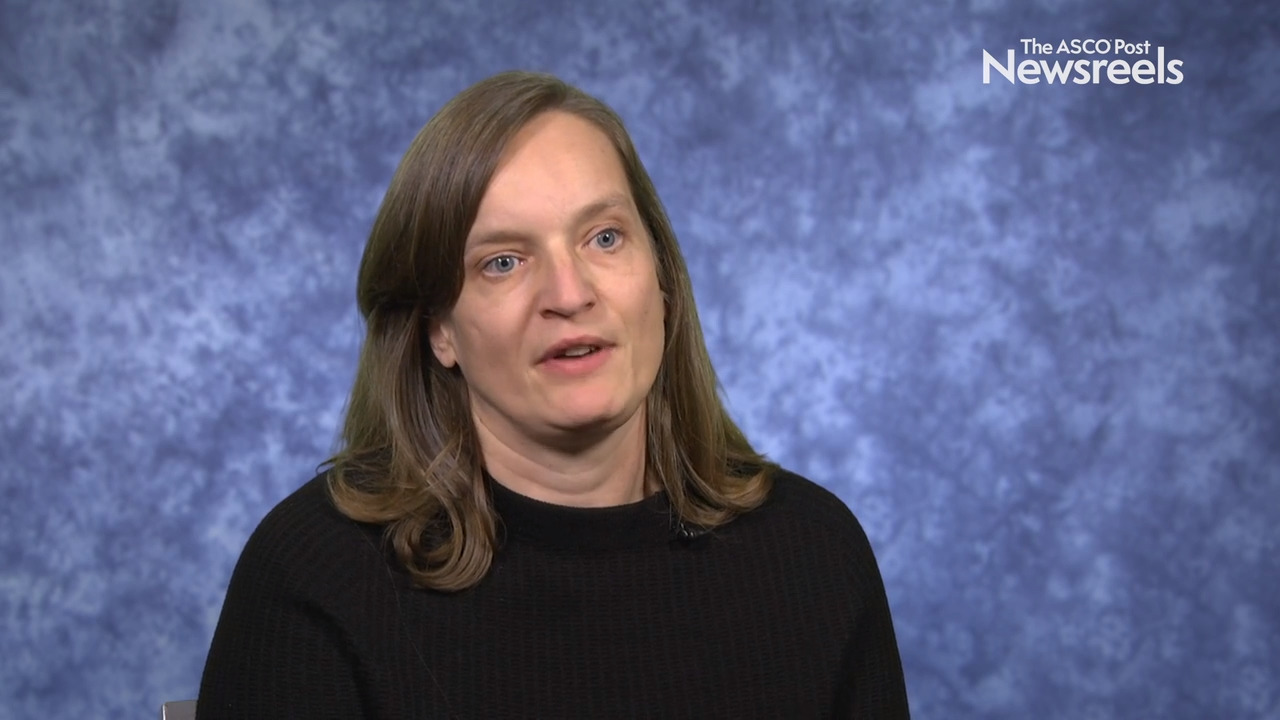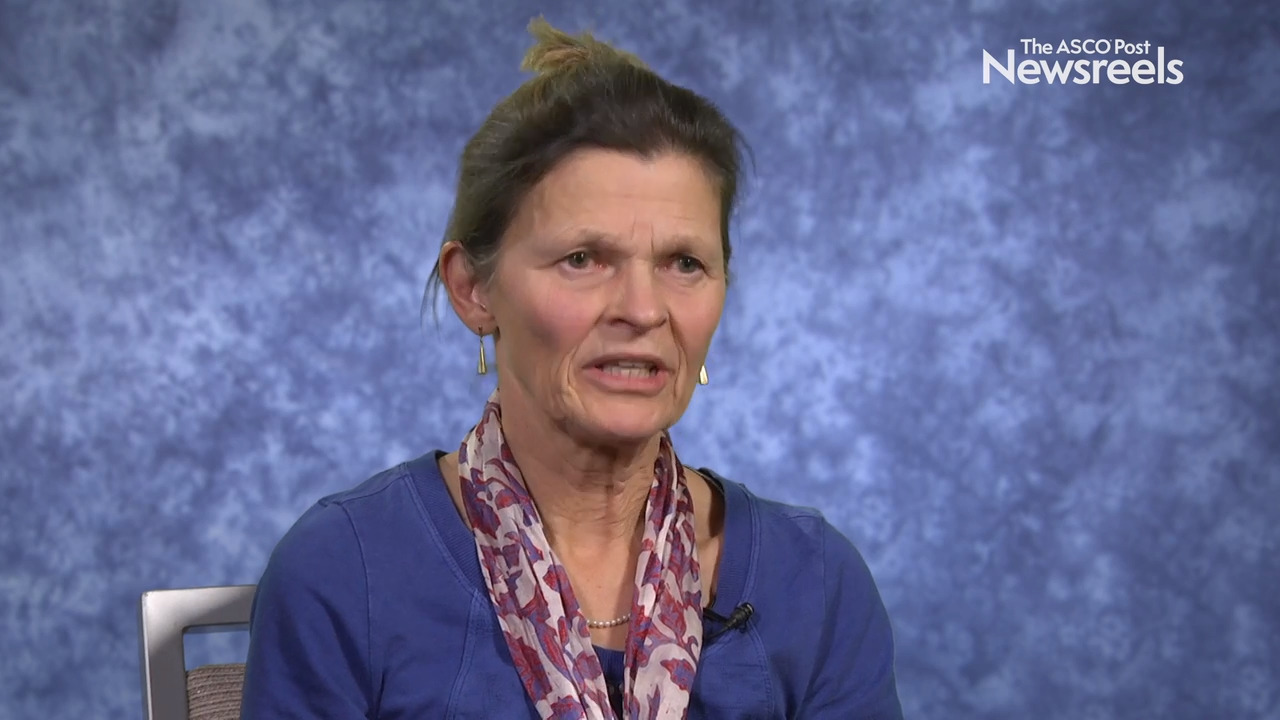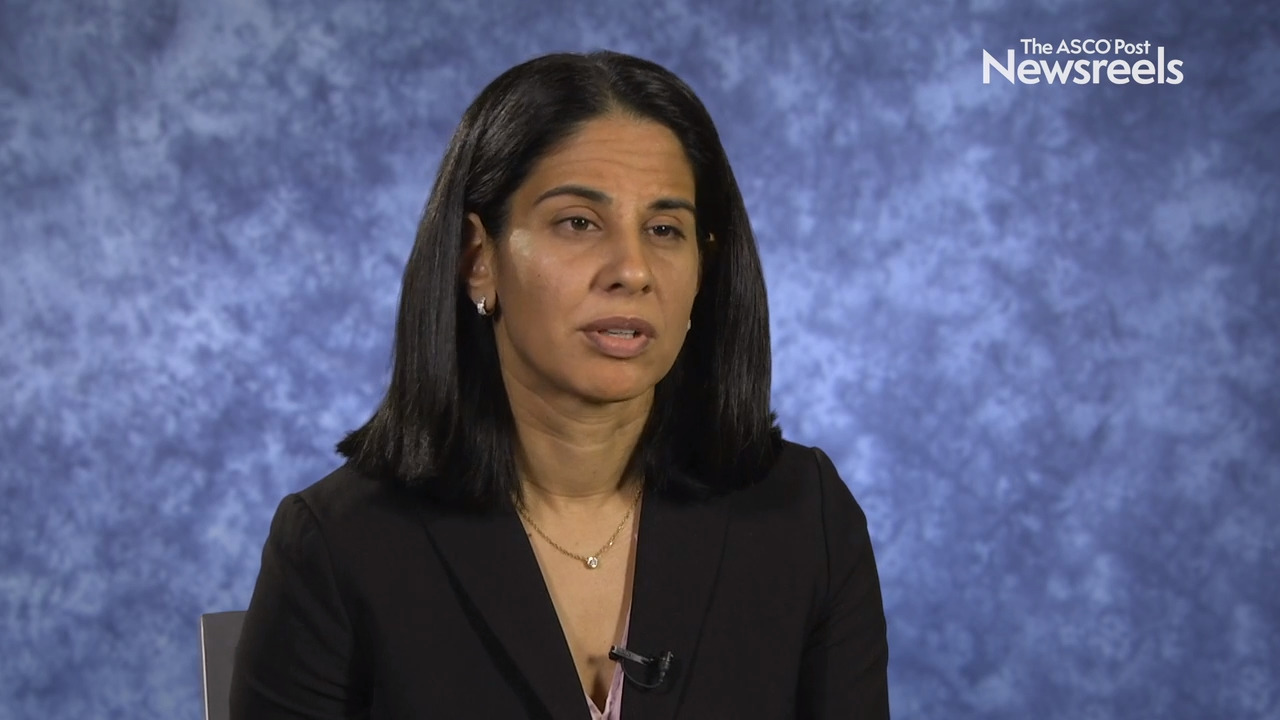Hope S. Rugo, MD, on Metastatic Triple-Negative Breast Cancer: Retrospective Analysis of PD-L1 Immunohistochemistry Assays
2019 San Antonio Breast Cancer Symposium
Hope S. Rugo, MD, of the University of California San Francisco Comprehensive Cancer Center, discusses a retrospective analysis on the effectiveness of the VENTANA PD-L1 SP142 assay, the Dako 22C3 assay, and the VENTANA SP263 assay as predictors of response to atezolizumab plus nab-paclitaxel in patients with metastatic triple-negative breast cancer (Abstract PD1-07).
Marie-Jeanne T.F.D. Vrancken Peeters, MD, PhD, of the Netherlands Cancer Institute, discusses an interim study analysis showing that ultrasound-guided core biopsies of the breast in patients with excellent response on MRI after neoadjuvant systemic therapy may not be accurate enough to safely select patients with pathologic complete response for omission of surgery (Abstract GS5-06).
Rashmi K. Murthy, MD, of The University of Texas MD Anderson Cancer Center, discusses data on the efficacy and safety of tucatinib, trastuzumab, and capecitabine, a treatment regimen under investigation for patients with advanced HER2-positive metastatic breast cancer refractory to standard-of-care regimens (Abstract GS1-01).
Ivana Sestak, PhD, of Queen Mary University of London and the Centre for Cancer Prevention, discusses study findings that confirm the prognostic ability of the Clinical Treatment Score at 5 years (CTS5) for late distant recurrence, specifically for patients older than 50 years and/or for those deemed to have intermediate- or high-risk hormone receptor–positive, HER2-negative, node-negative breast cancer. The CTS5 is less prognostic in women younger than 50 who received 5 years of endocrine therapy alone (Abstract GS4-03).
Madeleine M.A. Tilanus-Linthorst, MD, PhD, of Erasmus University, reports data from the first randomized trial comparing MRI breast cancer screening with mammography in women with a familial risk. Because MRI screening detected cancer at an earlier stage, it might reduce the use of adjuvant chemotherapy and decrease breast cancer–related mortality (Abstract GS4-07).
Sara M. Tolaney, MD, MPH, of Dana-Farber Cancer Institute, discusses phase II findings on patients receiving T-DM1 monotherapy as adjuvant treatment for stage I HER2-positive breast cancer, a regimen associated with few recurrences in the study population (Abstract GS1-05).
